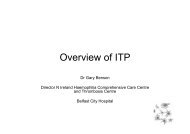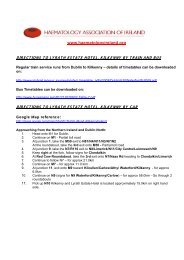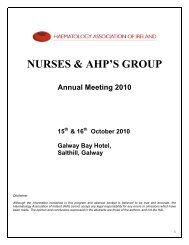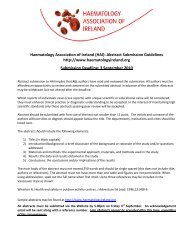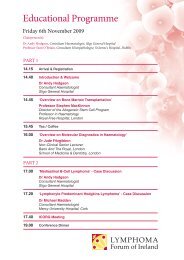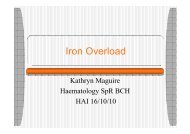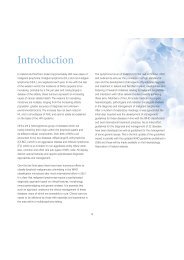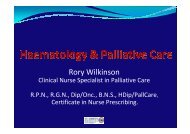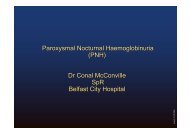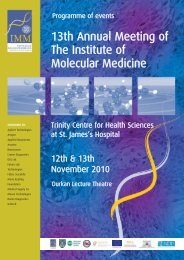Guidelines on Diagnosis and Treatment of Malignant Lymphomas
Guidelines on Diagnosis and Treatment of Malignant Lymphomas
Guidelines on Diagnosis and Treatment of Malignant Lymphomas
You also want an ePaper? Increase the reach of your titles
YUMPU automatically turns print PDFs into web optimized ePapers that Google loves.
Vaccinati<strong>on</strong> Policy<br />
Splenectomy may be carried out to de-bulk low grade<br />
lymphomas such as marginal z<strong>on</strong>e lymphomas or to treat itp<br />
which is comm<strong>on</strong>er in lymphoma patients. Functi<strong>on</strong>al<br />
hyposplenism may be present in patients with lymphoma e.g.<br />
enteropathy-type T-cell lymphoma associated with splenic atrophy<br />
<strong>and</strong> immunodeficiency <strong>of</strong> varying degrees will exist am<strong>on</strong>g this<br />
patient populati<strong>on</strong>. There fore patients with lymphomas benefit<br />
from a formal vaccinati<strong>on</strong> <strong>and</strong> prophylactic antibiotics strategy<br />
Pneumococcal <strong>and</strong> Haemophilus<br />
influenzae Type B vaccine:<br />
If splenectomy is required or if there is functi<strong>on</strong>al hyposplenism,<br />
vaccinati<strong>on</strong> should be given ideally > 72 hours before surgery<br />
but otherwise as so<strong>on</strong> as possible. All patients with HL<br />
<strong>and</strong> hyposplenic states should have these vaccinati<strong>on</strong>s.<br />
Pneumococcal vaccinati<strong>on</strong> should be repeated every 5 years.<br />
Meningococcal Type C vaccine:<br />
This vaccine should be given prior to splenectomy or in<br />
hyposplenic states.<br />
Influenza vaccinati<strong>on</strong>:<br />
Annual vaccinati<strong>on</strong> is advised.<br />
Prophylactic antibiotics:<br />
Post-splenectomy patients are at risk <strong>of</strong> fulminant pneumococcal<br />
sepsis <strong>and</strong> vaccinati<strong>on</strong> gives incomplete protecti<strong>on</strong>. They should<br />
take prophylactic antibiotics in the form <strong>of</strong> penicillin V 333mg BD<br />
or erythromycin 250mg BD if there is allergy to penicillin. Patients<br />
should have prompt access to broad-spectrum antibiotics at all<br />
times for use in the event <strong>of</strong> fever especially if they opt to avoid<br />
the use <strong>of</strong> prophylactic antibiotics.<br />
75



